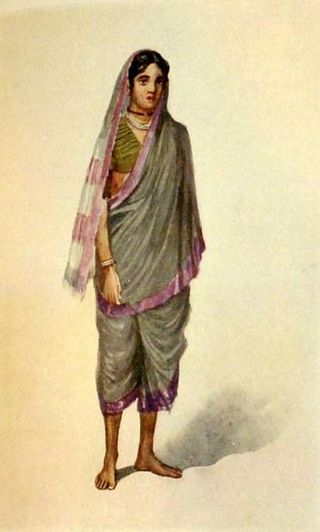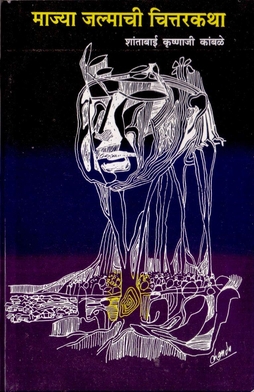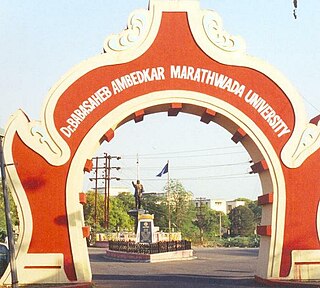
Bhimrao Ramji Ambedkar was an Indian jurist, economist, social reformer and political leader who headed the committee drafting the Constitution of India from the Constituent Assembly debates, served as Law and Justice minister in the first cabinet of Jawaharlal Nehru, and inspired the Dalit Buddhist movement after renouncing Hinduism.

Jyotirao Govindrao Phule was an Indian social activist, businessman, anti-caste social reformer and writer from Maharashtra. His work extended to many fields, including eradication of untouchability and the caste system and for his efforts in educating women and oppressed caste people. He and his wife, Savitribai Phule, were pioneers of women's education in India. Phule started his first school for girls in 1848 in Pune at Tatyasaheb Bhide's residence or Bhidewada. He, along with his followers, formed the Satyashodhak Samaj to attain equal rights for people from lower castes. People from all religions and castes could become a part of this association which worked for the upliftment of the oppressed classes. Phule is regarded as an important figure in the social reform movement in Maharashtra.The honorific Mahātmā, was first applied to him in 1888 at a special program honoring him in Mumbai.

Mahar is an Indian caste found largely in the state of Maharashtra and neighbouring areas. Most of the Mahar community followed Bharatratna Dr. B. R. Ambedkar in converting to Buddhism in the middle of the 20th century. There are still some Mahars who practice Hinduism.

Gail Omvedt was an American-born Indian sociologist and human rights activist. She was a prolific writer and published numerous books on the anti-caste movement, Dalit politics, and women's struggles in India. Omvedt was involved in Dalit and anti-caste movements, environmental, farmers' and women's movements, especially with rural women.
Shankarrao Ramchandra Kharat was a Marathi writer from Maharashtra, India.

Arun Krushnaji Kamble was an Indian Marathi language writer, professor, Politician, and Dalit activist. Arun Kamble, President and one of the founding members of Dalit Panthers of India, worked as a Head of Marathi department at University of Mumbai. He was the National General Secretary of Janata Dal. He took many major decisions in favour of Dalit, Backward Class and Minorities.
Shantabai Krushnaji Kamble was an Indian Marathi writer and Dalit activist. She wrote the first female Dalit autobiography.

Majya Jalmachi Chittarkatha is an autobiography of Shantabai Kamble published in 1983. This is considered the first autobiographical narrative by a Dalit woman writer. The work has been translated into various languages and is required reading for Marathi literary students at the University of Mumbai.
Bapu Chandrasen Kamble was an Indian politician, writer, editor, jurist, and social activist. He is also an Ambedkarite thinker, translator and biographer. Kamble is the leader of Republican Party of India (Kamble). He is from Maharashtra. He has written a Marathi biography of B. R. Ambedkar called "Samagra Ambedkar Charitra".
Kamble is a Marathi Indian surname commonly used by communities residing in Maharashtra. The word "kamble" is literally translated as "cotton blankets" and could very well be derived from it; though there also existed clan, namely Sonkamble, and this could be its derivation, too.
The Dalit Panthers is a social organisation that seeks to combat caste discrimination. It was led by a group of Mahar writers and poets, including Raja Dhale, Namdeo Dhasal, and J. V. Pawar in some time between the second and the third semester of 1972. It was founded as a response to the growing discontent among the Dalit youth during the 25th Independence Day celebrations. Inspired by the Black Panthers movement in the United States, poet-writers J V Pawar and Namdeo Dhasal founded the Dalit Panthers, urging a boycott of the Independence Day revelry, terming it a 'Black Independence Day'. The movement's heyday lasted from the 1970s through the 1980s, and it was later joined by many Dalit-Buddhist activists.

Namantar Andolan was a Dalit and Navayana Buddhist movement to change the name of Marathwada University, in Aurangabad, Maharashtra, India, to Dr. Babasaheb Ambedkar University. It achieved a measure of success in 1994, when the compromise name of Dr. Babasaheb Ambedkar Marathwada University was accepted. The movement was notable for the violence against Dalits and Navayana Buddhists.
Dalit literature is a genre of Indian writing that focuses on the lives, experiences, and struggles of the Dalit community, who have faced caste-based oppression and discrimination for centuries. This literature encompasses various Indian languages such as Marathi, Bangla, Hindi, Kannada, Punjabi, Sindhi, Odia and Tamil and includes diverse narratives like poems, short stories, and autobiographies. The movement originated in response to the caste-based social injustices in mid-twentieth-century independent India and has since spread across various Indian languages, critiquing caste practices and experimenting with different literary forms.
Gaekwad is a surname native to the Indian state of Maharashtra. The surname is found among the Marathas, Kolis and in Scheduled castes. It is also a common surname among Bharadis, Dhor, and Mahar communities of Maharashtra.

Urmila Pawar is an Indian writer and activist in the dalit and feminist movements in India and her works, all of which are written in Marathi language, have often been hailed as a critique of social discrimination and the savarna exploitation by commentators and media outlets.

Eleanor Zelliot was an American writer, professor of Carleton College and specialist on the India, Southeast Asia, Vietnam, women of Asia, Untouchables, and social movements.
Uttam Tupe was a writer and poet from Pune, India. He wrote several hundred short stories and 16 novels. One of his books was made into a successful play, and another into a feature film. Tupe also wrote about the social ills of the caste system and issues with Devadasi.
Gopal Baba Walangkar, also known as Gopal Krishna, is an early example of an activist working to release the untouchable people of India from their historic socio-economic oppression, and is generally considered to be the pioneer of that movement. He developed a racial theory to explain the oppression and also published the monthly journal Vital-Vidhvansak, targeted at the Brahmanical Orthodoxy.

Marathi Buddhists are Buddhists of Marathi ethnic and linguistic identity. The religious community resides in the Indian state of Maharashtra. They speak Marathi as their mother-tongue. The Marathi Buddhist community is the largest Buddhist community in India. According to the 2011 Indian census, Marathi Buddhists constitute 5.81% of the population in Maharashtra, which is 77% of the total Buddhist population in India.
Sanghapali Aruna, also known as Sanghapali Aruna Lohitakshi, is a human rights activist from India, best known for her work on Dalit women's rights. She is the Executive Director of Project Mukti.









